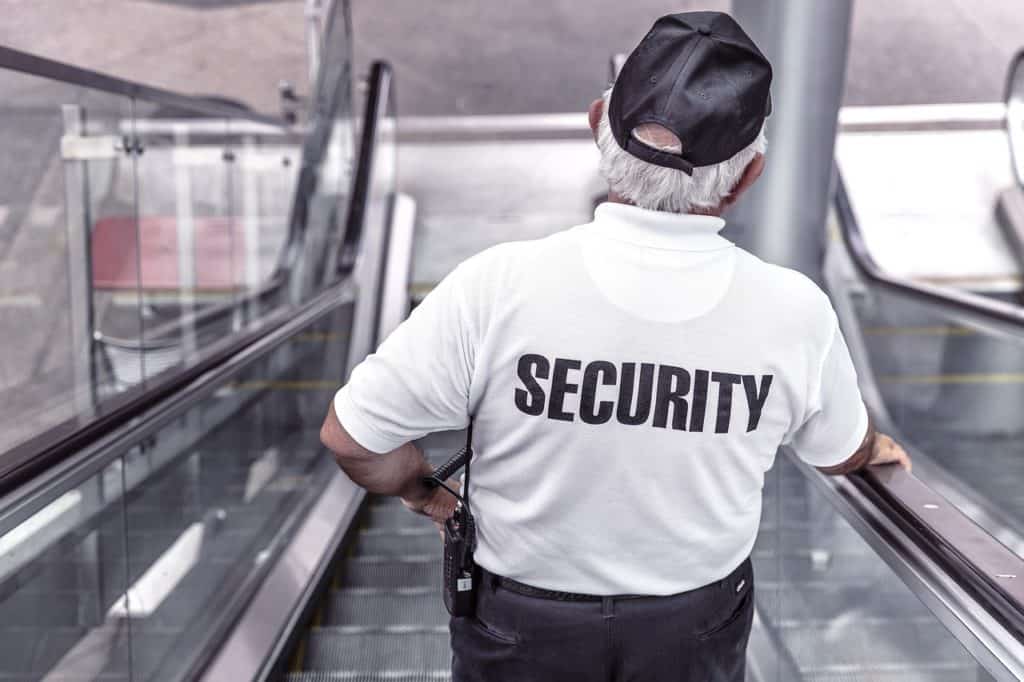California is a state that demands rigorous security measures to protect its residents, businesses, and assets. The individuals who stand as vigilant sentinels in the face of these challenges are California security guards.
For anyone considering a career as a security guard in California, understanding the licensing requirements is the initial step. The state’s regulatory framework for security professionals sets the standards for professionalism, competence, and integrity. Aspiring security guards must navigate this complex landscape to obtain the necessary credentials that empower them to protect and serve within the state.
This article delves into the multifaceted world of California security guards, exploring their licensing requirements, training programs, and the wide-ranging responsibilities they shoulder.
California Security Guard Licensing

Security guards play a crucial role in maintaining safety and order in various settings, from shopping malls to corporate offices and public events. To become a security guard in California, individuals must adhere to a set of strict licensing requirements and regulations set forth by the state’s regulatory agency, the California Bureau of Security and Investigative Services (BSIS). Understanding the licensing process and its associated elements is fundamental to anyone considering a career in this field.

The first and foremost requirement for individuals aspiring to work as security guards in California is meeting the minimum age of 18. This age restriction ensures that only responsible and mature individuals can undertake the significant responsibilities of the role. Candidates must also be legally eligible to work in the United States.
Before receiving their license, applicants are subjected to thorough background checks and fingerprinting. These checks are essential to confirm that candidates do not have any felony convictions or other disqualifying factors. Prospective security guards must be free of any disqualifying mental health conditions that could affect their judgment or performance on the job.
Additionally, security guards are required to complete state-mandated training programs. These programs cover a wide range of topics, including conflict resolution, legal principles, and emergency response procedures. The purpose of this training is to equip security guards with the skills and knowledge needed to perform their duties effectively.
By following the stringent licensing requirements, California ensures that its security guards are well-prepared to handle the challenges of their role. It sets a high standard for those entering the profession, contributing to a safer environment throughout the state. This introduction serves as a springboard to explore the intricacies of becoming a licensed security guard in California in the subsequent sections of this article.
California Security Guard Training Programs

California places great emphasis on ensuring that security guards receive comprehensive and standardized training to carry out their roles effectively. The state recognizes that a well-trained security workforce is key to maintaining a safe and secure environment for its residents and businesses. Consequently, it has established specific training programs and requirements to provide security guards with the knowledge and skills necessary for their roles.
One crucial aspect of security guard training in California is the initial training required for obtaining a Guard Card. Before working as a security guard, individuals must complete a state-mandated training course that covers various essential topics. These topics include the powers and limitations of security guards, legal and ethical considerations, emergency procedures, and conflict resolution techniques. Completing this course equips aspiring security guards with the fundamental knowledge they need to start their careers.
In addition to the initial training, California security guards must participate in ongoing education. This includes completing an annual eight-hour training course to stay updated on recent developments and maintain their skills. Continuing education ensures that security guards remain knowledgeable about relevant laws and regulations, emergency response protocols, and industry best practices.
Supplemental training programs are also available to security guards who wish to specialize in certain areas. For instance, specialized training programs exist for armed security guards, private investigators, and alarm company employees. These programs provide in-depth instruction on specific topics, such as firearm use, investigative techniques, and alarm system operations. Specialized training allows security professionals to diversify their skills and excel in their chosen areas.
Furthermore, the training landscape for security guards in California includes both classroom-based and online courses, catering to diverse learning styles and scheduling needs. This flexibility ensures that aspiring and existing security guards can access the required education to maintain high standards in the industry.
Ultimately, California’s commitment to security guard training programs serves to enhance the competence and professionalism of those entrusted with safeguarding the state’s people and property. By emphasizing ongoing education and specialized training, California is equipping its security personnel with the tools they need to excel in their roles and contribute to the state’s overall safety and security.
Armed vs. Unarmed Security: Weighing the Options for California Guards

Security guards in California play a vital role in maintaining safety and security across a range of settings. Depending on the specific needs of their employers, these guards can fall into two broad categories: armed or unarmed. Each type of security professional serves unique purposes and faces distinct challenges. Click HERE to read more.
Armed Security Guards:
Armed security guards in California are those who have undergone rigorous training and obtained the required permits to carry firearms while on duty. These individuals are typically entrusted with safeguarding high-value assets, providing executive protection, or securing properties with elevated security risks.
One primary advantage of employing armed security guards is the heightened deterrence factor. The presence of armed personnel can dissuade potential threats, as the knowledge that these guards can respond with force acts as a powerful deterrent. Armed security guards are also equipped to react swiftly and effectively to immediate threats, which can be crucial in high-risk situations.
However, the use of firearms and the responsibility associated with it necessitate comprehensive training. Armed security guards must be well-versed in firearm safety, conflict de-escalation, and the legal framework governing the use of force. Any use of a firearm must strictly adhere to California laws, making adherence to the rules and regulations paramount.
Unarmed Security Guards:
Unarmed security guards, on the other hand, provide security services without carrying firearms. These individuals are often deployed in environments where the primary role is to observe, report, and deter incidents without the use of lethal force. Common assignments include access control, monitoring surveillance systems, and conducting foot patrols.
Unarmed security guards excel in roles that require interaction with the public, including providing customer service and assistance. Their approachability and non-confrontational demeanor can enhance the safety and security of various environments, such as retail stores, hospitals, and office buildings.
One of the primary benefits of unarmed security is that it mitigates the risk associated with firearms, reducing the potential for the misuse of lethal force. However, unarmed security personnel must rely on their communication and de-escalation skills to handle situations effectively.
Choosing the Right Security Option:
In California, determining whether to employ armed or unarmed security guards depends on several factors, including the nature of the facility, specific security needs, budget constraints, and legal considerations. A risk assessment and consultation with a licensed security provider can help organizations make an informed decision.
Ultimately, the choice between armed and unarmed security guards in California reflects the unique demands of each security assignment. Both types play critical roles in safeguarding the state’s people, property, and assets, ensuring that the security needs of diverse industries and businesses are met effectively.
Security in the Entertainment Industry

The entertainment industry in California is a vibrant and dynamic sector, encompassing film and television production, live music events, theme parks, and much more. Ensuring the safety and security of the audience, performers, and staff is a top priority for all entertainment-related businesses and organizations in the state. Security professionals play a pivotal role in making sure that everyone can enjoy these experiences without concerns about their well-being.
Entertainment venues, whether they’re large arenas or intimate theaters, attract a diverse audience. Security in the entertainment industry involves handling various aspects of safety, from crowd management to emergency response. These professionals are skilled in addressing potential threats, preventing incidents, and managing large gatherings.
One crucial element of security in the entertainment industry is crowd management. California hosts numerous events that draw large numbers of attendees. Ensuring that crowds are adequately managed to prevent accidents and overcrowding is essential. This involves careful planning and coordination between security personnel and event organizers.
In addition to crowd management, security professionals in the entertainment industry are well-versed in detecting and preventing disruptions, including unruly behavior, illegal activities, and even potential terrorist threats. They are trained to react swiftly and efficiently in emergencies, making sure the audience and staff remain safe.
Emergency response plans are also a significant component of security in the entertainment industry. Whether it’s a medical emergency, a fire, or another critical situation, security personnel are trained to initiate the appropriate response procedures. Quick thinking and action can make a significant difference in the outcome of an emergency.
Overall, security in the entertainment industry is all about creating a safe environment for everyone involved. It’s about allowing performers to shine on stage, audiences to enjoy the show, and event organizers to operate smoothly. These professionals ensure that the magic of the entertainment industry remains magical while mitigating potential security risks.
Conclusion
As California continues to evolve, so will the role of security professionals. They stand ready to adapt, protect, and ensure that the communities they serve can live, work, and play in safety and security. In the land of endless opportunities, California’s security guards are the steady hand that guides you through it all.

